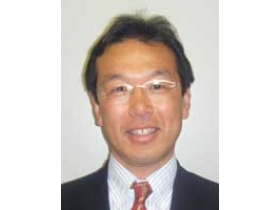Topics
JIPA President Usui talk to Japan Times "Time to take stock, readjust focus"
The Japan Intellectual Property Association (JIPA) is Japan's largest user group with a membership of over 1000 companies, and also the world's largest. Operated on a purely voluntary basis, the organization scrutinizes the issue of intellectual property rights. Hirohiko Usui of Denso Corporation, the newly appointed president of the JlPA, recently described his organization's stance and plans for fiscal 2008 to The Japan Times.
The JIPA is celebrating its 70th anniversary this year. It is an organization that is widely acknowledged "by anybody who is involved in intellectual property, and the members' awareness level is high," notes Usui.
As to the greatest advantage of the JIPA, Usui explains: "Often, JIPA members are rival companies in the same industry. But we learn from each other, and polish our knowledge and skills. Companies dispatch their employees to the JIPA because they recognize that the knowledge and capability levels of their workers rise through their involvement with the organization. Such conditions create a favorable cycle, ultimately contributing to raising the overall level of Japanese corporations."
Because it represents the business sector, the JIPA is very practical and pragmatic in its activities. In 2008, it is seeking to establish a user-friendly IP system through active opinion exchange among Japan, the U.S. and Europe. "By this, I mean to create unified patent application specifications, regardless of whichever country you apply for a patent in. This would greatly facilitate the application procedure and slash costs by reducing the translation fees," notes Usui. The second point that the JIPA stresses in 2008 is to turn the value of IP into a visible form. "IP is a business management asset, so we should turn patents into management information that can be studied and used by each company," Usui says. Because many Japanese makers are fighting for position in the global market, he says that "differentiation becomes the key. Just having the know-how doesn't lead to protection. Products must be swiftly produced incorporating such know-how, which then should acquire a patent. "
As more patent technologies become standardized, clashes of interests occur. As a countermeasure, Usui suggests, "The JIPA should be well prepared to state its stance and opinions when such problems arise while providing explanations on various IP cases that have been taken to court. In that context, studies on the cross patent system in the U.S., Europe and Japan are vital."
Training is the third crucial focus area for the JIPA. "Because IP work is very labor-and knowledge-intensive, IP staff have to continually up-date their knowledge to catch up with or get ahead of the new technological inventions their companies produce. Aware of such conditions, we have conducted training in the past, which we will continue in more aggressive forms," he says.
In a sense, the JIPA's 70th anniversary is a springboard for constructive, dynamic growth. "This is a good opportunity to harvest and assess the fruits of the organization's long-term activities. As for our current activities, the 20 committees will remain to heighten the ability of members as professionals and enhance their close relationship. However, I think we should review some projects that are quickly becoming outdated. As is the case with employee inventions, such projects can be absorbed into one commit-tee or another."
With the IP environment rapidly changing day by day, Usui suggests a "360-degree,
multifaceted vision" as a prerequisite for Japanese companies and their IP staff, and to avoid concentrating solely on what is happening "It is the fact that the number of patent applications in Japan from foreigners is relatively small, though the total number of applications worldwide is increasing. But this is no problem." He says the JIPA wishes to use Japanese patent applications as the base of their overseas patent applications. In that context, it is most important to further improve what is called patent prosecution highway - making application specifications common to the countries concerned and access to patent information available. The patent prosecution highway should be sped up. The JIPA thus heartily welcomes and supports Japan's move to create a patent prosecution highway with the United States, the United Kingdom, South Korea and Germany."
Another area of recent concern is China. Usui notes that its patent system is ambiguous and unclear. Because China has enormous power and potential, it could start applying for patents in large numbers in the U.S, and Europe. There is also the possibility of it eventually creating an original standard, a "China standard" standard, so to speak. "Due to such existing uncertainties, we should keep a close eye on moves by our gigantic next-door neighbor," he concludes. (M.Y.)
THE JAPAN TIMES 2008.4.18
[Update 2008-04-21 ]

